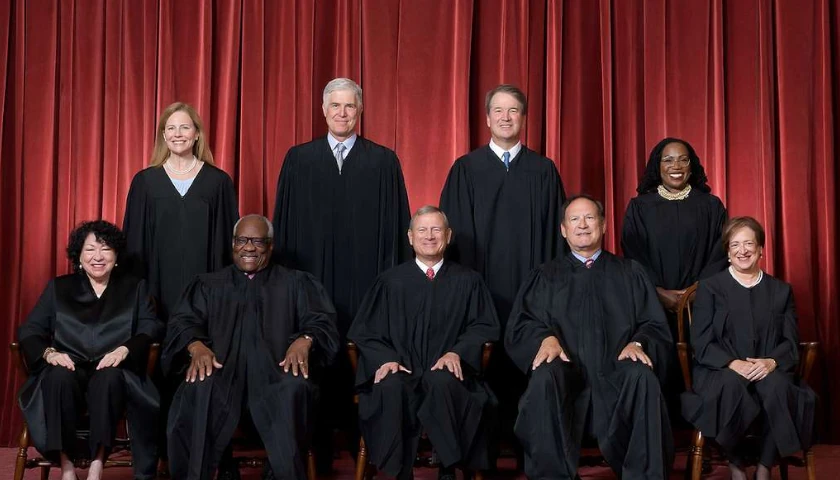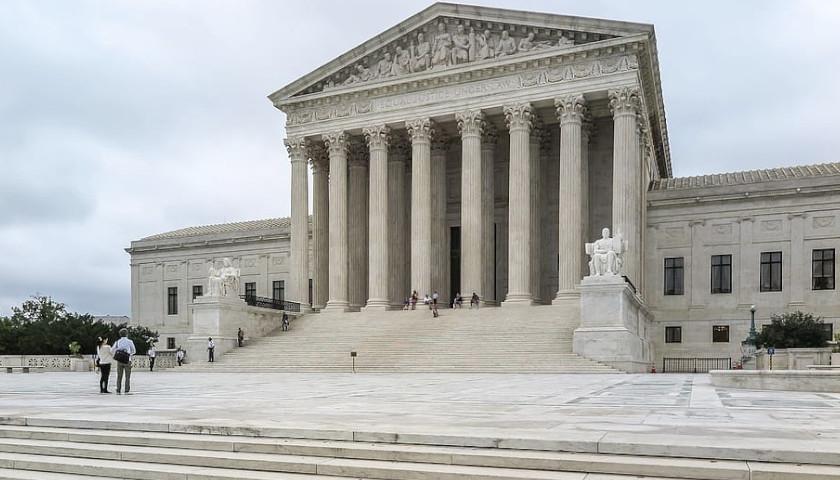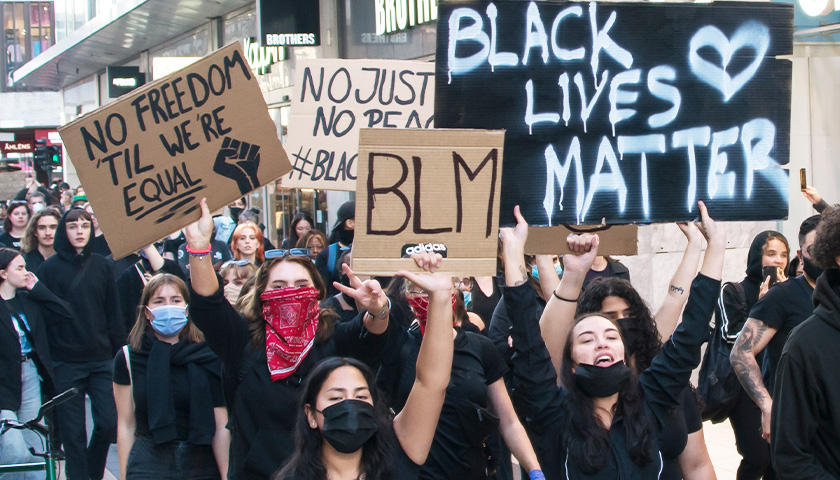by Katelynn Richardson
While former President Donald Trump has yet to release an updated list of potential Supreme Court nominees, conservatives hope a second term would secure more originalist judges on the bench.
Trump’s appointments to both the Supreme Court and the lower courts have been frequently cited as his greatest accomplishment as president. He’s promised on multiple occasions to release a new list of possible nominees ahead of the election, but the names to be included remain up in the air, though many in the conservative legal world believe his appointees to the federal appeals courts are among the likely choices.
“President Trump has said that, apart from matters of war and peace, the nomination of a Supreme Court justice is the most important decision an American President can make,” Trump Campaign Senior Advisor Brian Hughes told the Daily Caller News Foundation. “As president, he appointed constitutionalist judges who interpret the law as written, and he will do so again when voters send him back to the White House.”
 Trump told CBS News political correspondent Caitlin Huey-Burns on Monday that he would release a shortlist “over the next three or four weeks.” He likewise told the Washington Times in March that he intended to release a new list, adding his then-opponent President Joe Biden “should be doing the same thing.”
Trump told CBS News political correspondent Caitlin Huey-Burns on Monday that he would release a shortlist “over the next three or four weeks.” He likewise told the Washington Times in March that he intended to release a new list, adding his then-opponent President Joe Biden “should be doing the same thing.”
“I’m going to be putting together a list of judges — great judges — a list of about 20. I think it’s important to reveal who your Supreme Court justices will be,” Trump told the outlet in March. “There are people who say the list helped me win the election last time.”

Trump released an initial list of 11 potential nominees in May 2016 to represent the kind of judge he would select to fill Justice Antonin Scalia’s seat after his death, an unprecedented move that earned him increased confidence from conservative voters. He selected Justice Neil Gorsuch from his expanded list released in September 2016, which included ten additional names.
Trump released another list in November 2017, which included Justices Brett Kavanaugh and Amy Coney Barrett. He also released a new list in September 2020, shortly before the death of Justice Ruth Bader Ginsburg.
Republican Utah Sen. Mike Lee and Republican Missouri Sen. Josh Hawley, who were both included on Trump’s 2020 list, told the Dispatch in July that they did not know who may be on the new list.
“There are many Trump appointees on the lower courts who have a record of demonstrating courage and commitment to the Constitution as it is written, and I would hope the next president will pick someone in that mold,” JCN President Carrie Severino told the DCNF.
Article III Project President Mike Davis told the DCNF that Trump’s “biggest and most consequential accomplishment of his first term was the transformation of the federal judiciary.”
“President Trump will build on his success in his second term by appointing even more bold and courageous judges,” Davis said. “All you have to do is look at his appointments to the critically important courts of appeals to see the likely contenders for the Supreme Court.”
A number of Trump’s appointees to appeals courts, including Fifth Circuit Judge Kyle Duncan, Fifth Circuit Judge James Ho, Eight Circuit Judge David Stras, Fifth Circuit Judge Don Willett, Eleventh Circuit Judge Barbara Lagoa and D.C. Circuit Judge Gregory Katsas, have also been included on his prior lists.
Before selecting Gorsuch, Trump also personally interviewed three other candidates, including Third Circuit Judge Thomas Hardiman, Eleventh Circuit Judge William Pryor and then-Eastern District of Kentucky Judge Amul Thapar, who Trump appointed to the Sixth Circuit.
John Malcolm, vice president of the Heritage Foundation’s Institute for Constitutional Government, told the DCNF there are many who would make “outstanding justices,” pointing to Thapar, Ho, Stras, Katsas and Lagoa as a few who came to mind.
Malcolm also highlighted two others from Trump’s prior lists, former solicitor generals Paul Clement and Noel Francisco, along with Fifth Circuit Judge Andrew Oldham, D.C. Circuit Judge Neomi Rao, Third Circuit Judge Stephanos Bibas, Eleventh Circuit Judge Elizabeth Branch, Sixth Circuit Judge Raymond Kethledge and Ninth Circuit Judge Patrick Bumatay.
Clement has argued more cases before the Supreme Court since 2000 than any other attorney, including the recent Loper Bright case that led to the justices overturning Chevron deference in June.
Ho and Branch were among a group of federal judges who announced in May they would not hire clerks from Columbia University, which they called an “incubator of bigotry,” over the institution’s handling of pro-Palestinian demonstrations. The two judges also said last year they would not hire clerks from Stanford Law after students shouted down Duncan during his speech for the school’s Federalist Society chapter.
Trump included five recommendations from a list Malcolm compiled on his initial list of eleven potential nominees in 2016.
“If Trump becomes president again, he could ensure a solid conservative majority on the Court for the next 15 or 20 years,” Ed Whelan, Antonin Scalia Chair in Constitutional Studies at the Ethics and Public Policy Center, noted in the National Review in July. “An election that produces his victory would very likely give Republicans control of the Senate.”
Whelan wrote that Trump can “build an outstanding list from the dozens of federal appellate judges he appointed” and suggested adding Francisco to the list.
“On top of his superb qualifications, Francisco would be one of several appealing candidates to be the first Asian-American justice.” he wrote.
Vice President Kamala Harris has not said who she would name to the court. She does, however, have an extensive record from her time in the Senate and as California’s attorney general that reflects her views on the Constitution.
In the Senate, she used questions during nomination hearings to press appointees on their personal views on issues like climate change and abortion. As California attorney general, she consistently took left-wing positions on briefs she authored and signed, including on affirmative action, religious liberty and LGBT issues.
President Joe Biden said in June that the next president “is likely to have two new Supreme Court nominees.” He said that is “one of the scariest” parts of a potential second term for Trump.
Biden proposed Supreme Court reforms in July that included a constitutional amendment to the recent decision on presidential immunity, term limits and a code of conduct for the justices.
– – –
Katelynn Richardson is a reporter at Daily Caller News Foundation.


